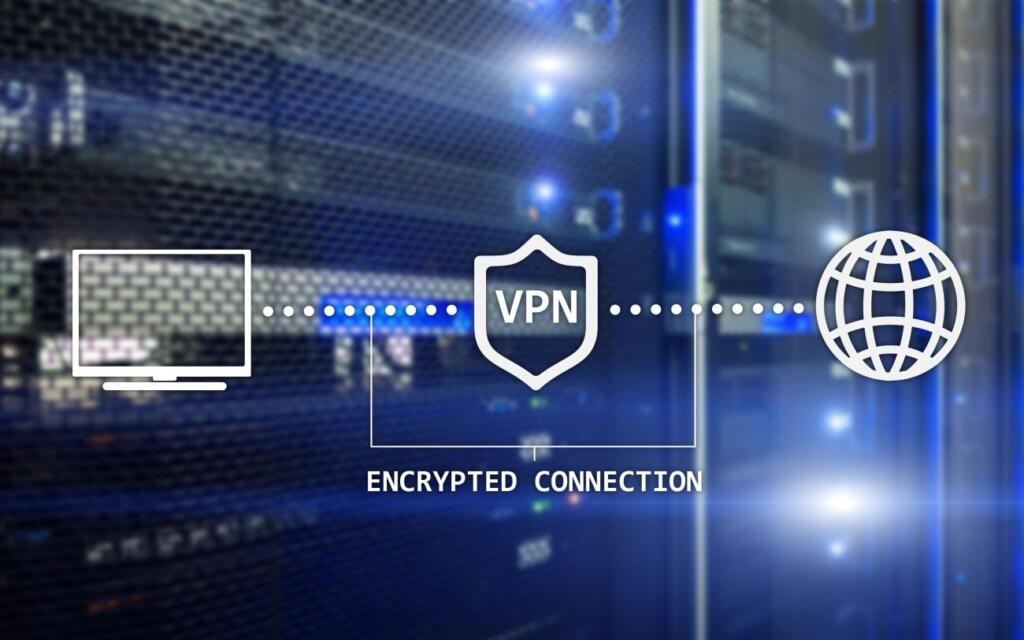Whether it’s from a friend enjoying a different country’s Netflix or your favorite podcast’s advertisements, you’ve likely heard about VPNs and all their benefits by now. Before blindly purchasing a VPN yourself, it’s important to first understand what exactly a VPN is, reasons to use one, and the differences between free VPNs and paid VPNs.
If you do decide a VPN is right for you, we compiled a list of the top-rated VPNs currently on the market to help point you in the right direction.
 Funtap / Shutterstock
Funtap / ShutterstockWhat is a VPN?
VPN stands for Virtual Private Network. Unlike a public internet connection, a VPN provides you with online privacy and anonymity.
Specifically, VPNs mask your internet protocol (IP) address. They also establish secure and encrypted connections. Together, these two protective measures allow you to navigate the internet in a virtually untraceable manner.
As a result, you end up with a connection to the internet that is more secure and private than even a password-protected Wi-Fi connection.1
Reasons to Use a VPN
Avoid Cookie Trackers
Whenever you visit a website, something called a cookie is usually attached to your identity.
A cookie is a small data file saved by a website onto your computer or device. It shares details about your web-browsing activities between two or more unrelated sites or services.
While some cookies are harmless, others are more nefarious. These cookies gather information about your behavior and what you click on while browsing the internet. This information can then be used by all sorts of third parties, including advertisers.
According to Privacy.net, tracking cookies can record all kinds of information, including:
- Search queries;
- Purchases;
- Device information;
- Location;
- When and where you saw previous advertisements;
- How many times you’ve seen an ad, and;
- What links you click on.2
By hiding your IP address with a VPN, you can effectively disconnect your identity from the cookies that websites create. This process makes it impossible for anyone to use them to track your online activity and store any of the information above.
Protect Your Private Life Online
Just because you have some Google searches you’re not proud of doesn’t mean that third party companies and advertisers should know about them. Whether it’s an embarrassing Google search, your subscription to a lewd online community, your controversial tweets, or just your social life, a VPN can help to keep you and your private life online a secret.3
Free vs. Paid
Free VPNs are more likely to be created for reasons that defeat the whole purpose of using a VPN in the first place. For instance, VPN services are relatively easy and quick to create. This makes them a great service for data thieves or hackers to exploit.
Outside of data thieves and hackers, larger companies also gravitate towards free VPNs to gather personal information. For example, as described by Fast Company, Facebook used to offer a “free” VPN service called Onavo. While Onavo was free in the sense that you didn’t have to pay money to use it, users of Onavo sent all their web traffic through Facebook’s servers, which the company then mined for data.
With a paid VPN, there’s less incentive for companies to mine your data because you’re paying them a recurring service fee. A fee that’s generally in the area of £3 to £10 a month per month.4
Top VPN Providers
ExpressVPN
Price: Less than £6 per month for an annual package, which includes three months free.
Features
- Number of IP Addresses: 30,000
- Number of Servers: 3,000+
- Number of Server Locations: 160
- Number of Simultaneous Connections: 5
- Country/Jurisdiction: British Virgin Islands
- Available in 94-plus countries.
- The killswitch feature to protect data if a VPN connection fails.
- Supports bitcoin as a payment method.
With over a decade of experience, ExpressVPN is one of the most renowned and trusted VPNs on the market. Even better, it’s one of the fastest and most private VPNs. This is thanks to their TrustedServer technology, which ensures that no logs of users’ online activities are ever made.
This high degree of quality also applies to their in-depth setup guides and FAQs.5
Surfshark
Price: As low as £1.17 per month for its 24-month plan. However, you will need to pay £28.17 upfront.
Features
- Number of Servers: 1,000
- Number of Server Locations: 60
- Country/Jurisdiction: British Virgin Islands
- Unlimited device support.
- Includes antimalware, ad-blocking, and tracker-blocking.
- Whitelist feature to allow certain apps and websites to automatically bypass the VPN.
While Surfshark may be one of the smaller VPNs available, it doubles down on its features to make up for its size. Unlike many of its competitors, Surfshark allows you to connect as many devices as you want to your VPN.
Surfshark is a great choice for people who want to go beyond the standard protection offered by most VPNs. They offer three special modes:
- Camouflage: Hides your VPN activity to make it appear to your internet service provider (ISP) that you’re not using a VPN.
- Multihop: Alternates your connection between multiple countries
- NoBorders: Allows you to use Surfshark in otherwise restrictive regions.6
NordVPN
Price: As low as £2.05 per month for a three-year plan.
Features
- Number of IP Addresses: 5,000
- Number of Servers: 5,200+ servers
- Number of Server Locations: 62
- Number of Simultaneous Connections: 6
- Country/Jurisdiction: Panama
- Available in 62 countries.
- 30-day refund policy.
Another veteran in the VPN market is NordVPN. They offer everything you want to see in an effective VPN. This includes a dedicated IP option, a high number of simultaneous connections, and the ability to use Tor for an extra level of privacy.
Plus, NordVPN has a tested history of quickly resolving breaches and not logging user activity.7